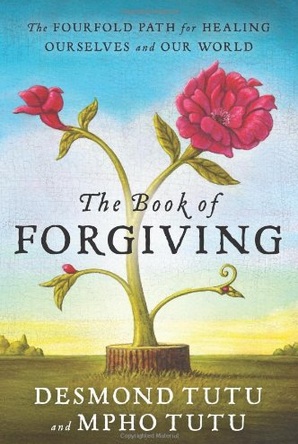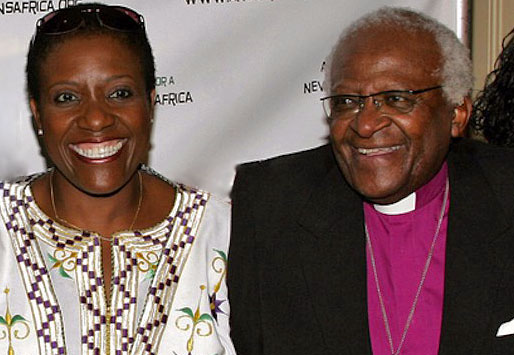As co-authors of The Book of Forgiving – The Fourfold Path for Healing Ourselves and Our World, Archbishop Desmond Tutu and his biographer (and daughter), Reverend Mpho Tutu, assert that nobody and nothing is inherently beyond forgiveness. Is that actually true?
You know, I think it really is. That said, I feel that each individual needs to decide for themselves who, what and when they’re ready to forgive. As I wrote previously on The Wisdom Daily, there are painful situations where atonement may be sincerely offered but forgiveness is not achievable for years, or remains very hard work indefinitely.
 This book by the Tutus – available this month for the first time in paperback (following up the pair’s 2011 joint effort, Made for Goodness) – is beautiful to read, and I definitely recommend it. My only caution is that you need not feel badly about yourself if you don’t immediately start forgiving everyone for everything. We can presume that’s not the authors’ intent, but this collaborative effort does run the risk of making some readers feel that way, and that would be a shame.
This book by the Tutus – available this month for the first time in paperback (following up the pair’s 2011 joint effort, Made for Goodness) – is beautiful to read, and I definitely recommend it. My only caution is that you need not feel badly about yourself if you don’t immediately start forgiving everyone for everything. We can presume that’s not the authors’ intent, but this collaborative effort does run the risk of making some readers feel that way, and that would be a shame.
What The Book of Forgiving does – with genuine wisdom, courage and beauty – is remind readers that the option to forgive is always there, and that when we offer forgiveness to others, we may be giving ourselves a remarkable gift as well. The same is true, I think, when we seek forgiveness from others, whether it’s ultimately granted to us or not.
In Nobel laureate Desmond Tutu’s own words, from the pages of this book: “There are days when I wish I could erase from my mind all the horrors I have witnessed. It seems there is no end to the creative ways we humans can find to hurt each other, and no end to the reasons we feel justified in doing so. There is also no end to the human capacity for healing. In each of us, there is an innate ability to create joy out of suffering.”
Image credit: Tinseltown/Shutterstock.com

